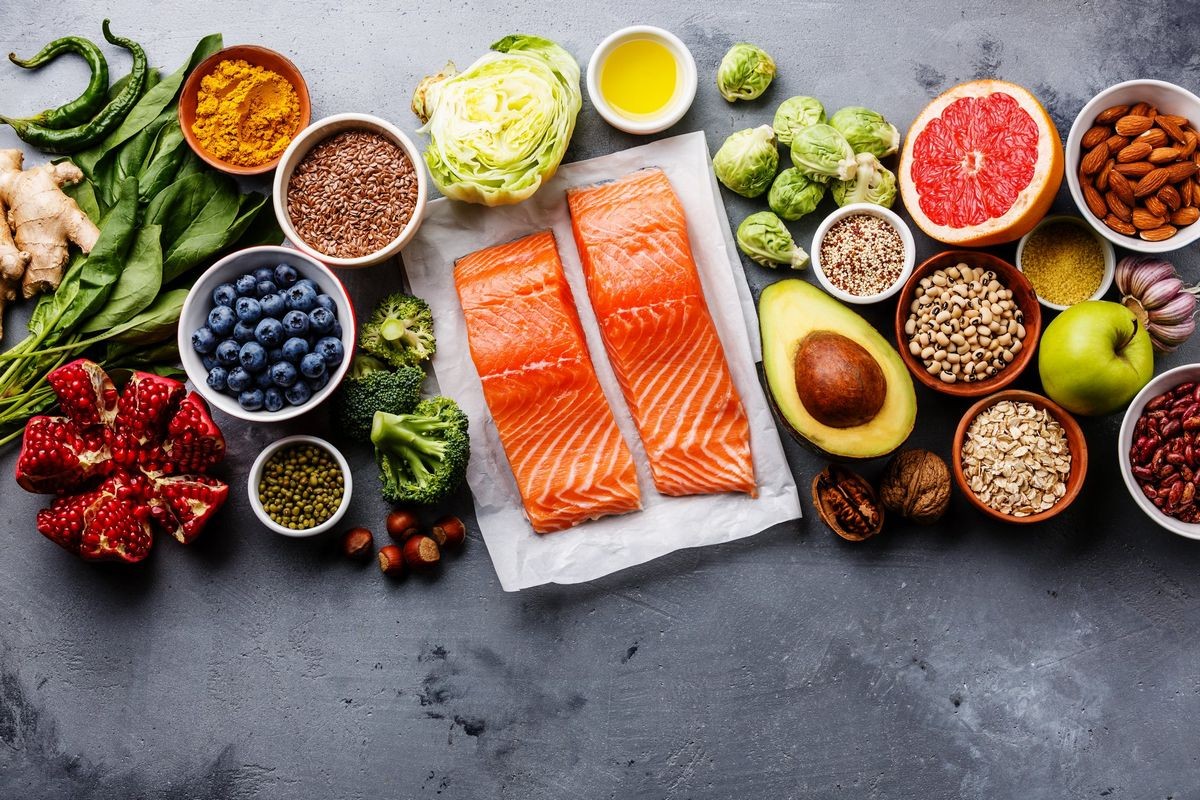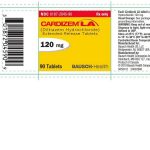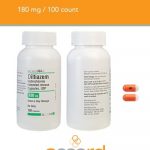
Healthy Eating: Foods That Help Increase Blood Flow Circulation
Blood is the fluid that supplies oxygen and nutrients to your heart, lungs, organs, muscles, and other systems. Good circulation optimizes the delivery of oxygen and nutrients throughout your body.
The food you eat impacts circulation. You can eat to boost blood flow. Healthy habits including regular exercise, staying well hydrated, maintaining a healthy weight, and avoiding smoking can all improve circulation. A healthy diet and good habits also decrease the risk of deep vein thrombosis (DVT). When you go to the grocery store, choose foods that will make your heart and blood vessels “happy”.
Cayenne Pepper
Cayenne red pepper is an orange-red spice that can help boost blood flow. A compound called capsaicin in the red pepper helps relax muscles that line blood vessels. This, in turn, allows for blood to flow more easily and it decreases blood pressure.
Beets
Beets are root veggies that are rich in nitrate, a compound your body converts to nitric oxide. Nitric oxide helps widen blood vessels and increases blood flow. In one study, researchers found that beet juice decreases systolic blood pressure, which is the first number of a blood pressure reading.
Berries
If you’re wondering how to increase blood flow, look no further than berries. Berries are rich in a compound called anthocyanin, which is an antioxidant responsible for berries red and purple hues. Anthocyanin protects artery walls and keeps blood vessels flexible. They also stimulate the release of nitric oxide to lower blood pressure.
Fatty Fish
Researchers say fish is a heart-healthy food, but why? Certain fish, including salmon, herring, mackerel, trout, and halibut are rich in omega-3 fatty acids. These healthy fats boost circulation and lower resting blood pressure. Fatty fish is among the foods that increase blood flow and keep arteries unclogged.
Pomegranates
Tart pomegranate seeds are rich in nitrates and antioxidants that boost circulation. These compounds keep arteries wide open, or dilated, and help lower blood pressure. This leads to better blood flow to the brain, heart, muscles, organs, and tissues. Athletes who eat pomegranate seeds may notice that increased blood flow boosts performance, too.
Garlic
Garlic is rich in a compound called allicin, which helps blood vessels relax. People who eat ample amounts of garlic experience improved blood flow through the heart. When blood flows through the heart more easily, this reduces the workload on the heart. Blood pressure is decreased when your heart doesn’t have to work as hard to pump blood.
Walnuts
Eating nuts, especially walnuts, benefits your heart and blood vessels. Omega-3 fatty acids in walnuts called alpha-linolenic acid help blood flow smoothly. In one study, people who ate walnuts regularly for 8 weeks experienced improvements in blood vessel health and reduced blood pressure. Their blood vessels were also more flexible.
Grapes
Deep purple grapes are rich in antioxidants that boost blood flow by relaxing blood vessel walls and helping blood vessels work better. Compounds in grapes decrease inflammation and make blood less sticky, so you’re less likely to suffer from blood clots. Grapes are a sweet treat that may help curb circulation issues.
Turmeric
Turmeric is a yellow spice used commonly in Indian cuisine. The spice derives its golden yellow color from the compound curcumin. Curcumin may increase levels of nitric oxide, which in turn widens blood vessels. When blood vessels are wider, blood flows more easily and reaches your heart, brain, organs, muscles, and tissues.
Spinach
If you suffer from high blood pressure, reach for spinach. This leafy green is rich in nitrates. Your body converts nitrates to nitric oxide, which makes blood vessels wider so blood can flow through more easily. Results of one study found that eating spinach makes arteries flexible and decreases blood pressure.
Citrus Fruit
People reach for oranges and other citrus fruits because they are rich in vitamin C, but there are other reasons to make citrus a regular part of your diet. Antioxidants in citrus fruits decrease inflammation, boost circulation, and help prevent blood clots. Results of one study found that people who drank orange juice regularly experienced lower blood pressure.
Chocolate
Is chocolate your favorite sweet treat? If so, you’re in luck. Compounds in chocolate seem to improve blood vessel function and blood flow. And antioxidants in chocolate dilate blood vessels and lower blood pressure. Choose dark chocolate to reap the benefits, but be mindful of portion sizes. Chocolate is high in fat and calories.
Ginger
Many people know ginger aids digestion and helps relieve nausea, but it benefits circulation, too. Ginger acts as a vasodilator, meaning it widens blood vessels and can reduce blood pressure. Ginger is an ingredient in Asian and Indian cuisine. You can also use ginger to make a tea.
Healthy Eating: Foods That Help Increase Blood Flow Circulation
IMAGES PROVIDED BY:
- Getty Images
- Getty Images
- Getty Images
- Getty Images
- Getty Images
- Getty Images
- Getty Images
- Getty Images
- Getty Images
- Getty Images
- Getty Images
- Getty Images
- Thinkstock
- Thinkstock
- Go Red For Women, American Heart Association: "Exercise to Prevent Heart Disease."
- PLoS One: "Elevated Sodium and Dehydration Stimulate Inflammatory Signaling in Endothelial Cells and Promote Atherosclerosis."
- Canadian Journal of Cardiology: "Obesity and Atherosclerosis: Mechanistic Insights."
- Arteriosclerosis, Thrombosis, and Vascular Biology: "Smoking and Cardiovascular Disease: Mechanisms of Endothelial Dysfunction and Early Atherogenesis."
- Journal of Nutrition and Metabolism: "Capsaicinoids Modulating Cardiometabolic Syndrome Risk Factors: Current Perspectives."
- The Journal of Nutrition: "Inorganic Nitrate and Beetroot Juice Supplementation Reduces Blood Pressure in Adults: A Systematic Review and Meta-Analysis."
- Food & Nutrition Research: "Anthocyanidins and anthocyanins: colored pigments as food, pharmaceutical ingredients, and the potential health benefits."
- Nutrients: "The Effect of Anthocyanin-Rich Foods or Extracts on Vascular Function in Adults: A Systematic Review and Meta-Analysis of Randomised Controlled Trials."
- Circulation: "Omega-3 Fatty Acids and Heart Health."
- European Journal of Sport Science: "Effects of pomegranate extract on blood flow and vessel diameter after high-intensity exercise in young, healthy adults."
- Pharmacological Research: "Effects of pomegranate juice on blood pressure: A systematic review and meta-analysis of randomized controlled trials."
- The Anatolian Journal of Cardiology: "Effects of garlic on brachial endothelial function and capacity of plasma to mediate cholesterol efflux in patients with coronary artery disease."
- The American Journal of Clinical Nutrition: "Effects of chocolate, cocoa, and flavan-3-ols on cardiovascular health: a systematic review and meta-analysis of randomized trials."
- Diabetes Care: "Effects of Walnut Consumption on Endothelial Function in Type 2 Diabetic Subjects: A randomized controlled crossover trial."
- The Journal of Nutrition: "Grape Polyphenols Reduce Blood Pressure and Increase Flow-Mediated Vasodilation in Men with Metabolic Syndrome."
- Aging: "Curcumin supplementation improves vascular endothelial function in healthy middle-aged and older adults by increasing nitric oxide bioavailability and reducing oxidative stress."
- Clinical Nutrition Research: "Effect of Spinach, a High Dietary Nitrate Source, on Arterial Stiffness and Related Hemodynamic Measures: A Randomized, Controlled Trial in Healthy Adults."
- Food Chemistry: "Citrus flavonoids: Molecular structure, biological activity and nutritional properties: A review."
- The American Journal of Clinical Nutrition: "Hesperidin contributes to the vascular protective effects of orange juice: a randomized crossover study in healthy volunteers."
This tool does not provide medical advice. See additional information:
THIS TOOL DOES NOT PROVIDE MEDICAL ADVICE. It is intended for general informational purposes only and does not address individual circumstances. It is not a substitute for professional medical advice, diagnosis or treatment and should not be relied on to make decisions about your health. Never ignore professional medical advice in seeking treatment because of something you have read on the MedicineNet Site. If you think you may have a medical emergency, immediately call your doctor or dial 911.
THIS TOOL DOES NOT PROVIDE MEDICAL ADVICE. It is intended for general informational purposes only and does not address individual circumstances. It is not a substitute for professional medical advice, diagnosis or treatment and should not be relied on to make decisions about your health. Never ignore professional medical advice in seeking treatment because of something you have read on the MedicineNet Site. If you think you may have a medical emergency, immediately call your doctor or dial 911.


